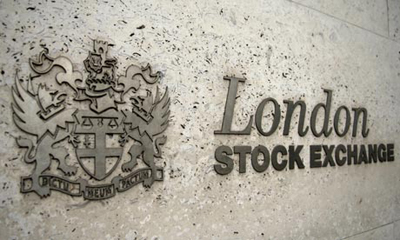Monday, 13 July 2015 17:19
 LONDON: A bailout deal for Greece and Chinese shares’ bounce to two-week highs helped lift emerging stocks by 1 percent on Monday, with the sharpest gains seen in eastern Europe.
LONDON: A bailout deal for Greece and Chinese shares’ bounce to two-week highs helped lift emerging stocks by 1 percent on Monday, with the sharpest gains seen in eastern Europe.
Euro zone leaders agreed on a roadmap to a possible third bailout for Greece after night-long haggling, sparking gains on equity and peripheral bond markets, even though the deal hinges on Athens enacting key reforms this week.
Earlier, Asian markets firmed too as Shanghai and Shenzen indexes rose about 2.5 percent and many interpreted China’s lacklustre trade data as potentially leading to more monetary or fiscal stimulus.
Emerging stocks which last week suffered their worst weekly loss since December 2014, rose 1 percent. The Prague bourse rose 1 percent while Warsaw and Budapest gained half a percent , following gains in Western Europe. Istanbul rose 0.5 percent.
While the Athens stock market remains shut, US listed Greek assets rose in pre-market trade.
“We are seeing a sort of short-term rally, central European markets are reacting on an interim basis (but) I actually think we’ve seen most of the relief already,” said Simon Quijano-Evans, head of EM research at Commerzbank who believes the latest bailout deal will not resolve the euro zone crisis. Eurobonds posted modest gains after rising around 1 cent in price on Friday, with Bulgaria’s 2024 eurobond at a new two-week high while Romania’s 2024 issue firmed 0.3 cent to the highest in almost three weeks. Both countries have close trade and banking ties with Greece as do other Balkan states such as Serbia, Croatia and Macedonia.
Serbia’s 2020 dollar bond rose almost 1 cent.
The Polish zloty and Hungarian forint rose 0.5 percent against the euro to 3-1/2 week and three-week highs respectively while Serbia’s central bank sold euros to stem dinar gains.
BNP Paribas said more currency gains were possible as investors had mostly been short central European currencies. It added that if a Greek deal was reached, “we see the biggest risk of appreciation as lying in local currencies”.
Polish 10-year bond yields however failed to break below the key 3 percent level, breached last week. Russian stocks fell 0.3 percent however and the rouble lost 0.7 percent to the dollar, as oil prices fell, reacting to an approaching nuclear deal with Iran which would let more oil onto world markets.
The Iran negotiations also weighed on Gulf markets, though Dubai which is seen emerging as a staging post for trade and investment in Iran, gained 1 percent.
Elsewhere, Uganda’s central bank is holding an unscheduled meeting at which it could tighten policy if the shilling’s slide is deemed to be feeding through to inflation. The currency hit record lows last week forcing authorities to sell dollars. “We expect the (bank) to take significant measures to restrain FX pressures,” Barclays wrote.
“FX pressures have persisted in spite of cumulative 200 bps (rate) increase since April and we believe a hike of up to 200 bps is probable today.”



























